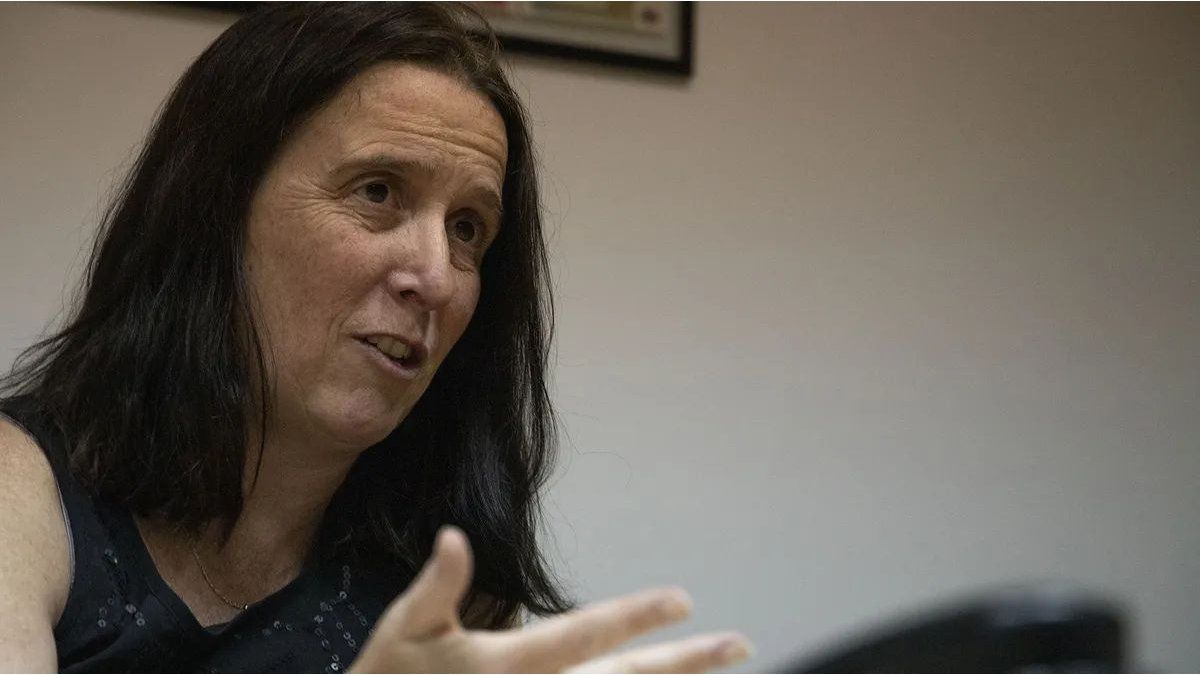the economist Marina Dal Poggettoexecutive director of the consultancy Eco Go, answered all the questions that businessmen have today: what will happen to the inflation after the devaluation, how will end the spent public and what level of governance has each of the economic plans of the three main candidates for president. She did it with Daniel Gonzalez, CEO of IDEA, in a talk that was broadcast on social networks.
When asked if the fiscal deficit fell as a percentage of GDP, Dal Poggetto replied: “You are seeing it. Kirchnerism took public spending from a historical average of 25 points to 42 of GDP. Macri in 2018-2019 with the jump in inflation from 25 to 50%, the liquefaction of pension spending and some reforms lowered it to 36%. With the pandemic it returned to 40%, last year it was 36% and today with the inflationary acceleration that level of consolidated spending by the Nation, provinces and municipalities will be in the area of 33% of GDP. You had an adjustment of the cost of 10 points of the product in relation to 2015”.
However, ahead he warned: “This adjustment in the Nation is not sustained if you do not change the pension indexation formula. The change in relative prices that you require in a stabilization plan generates an inflationary jump that will liquefy them even more, and it will take them below subsistence levels, for which you will have a political problem and ethical. How do you do to compensate the income and, as a reverse, how to change that indexing forward”.
What a future government program will require
In that sense, Dal Poggetto mentioned that he has a obsession with the horizon of the reforms. “A stabilization program is going to require changing relative starting prices, long-lasting fiscal consolidation, redefining interest rates, and managing quasi-fiscal deficits. It is much more than a monetary and exchange rate regime”, he affirmed.
According to his gaze, a The next government’s successful program will require compliance with 3 vertices: orn stabilization plan, an agenda of structural reforms and governance. González from IDEA, who was CEO of YPF during the government of Mauricio Macri, asked him how he sees Sergio Massa, Patricia Bullrich and Javier Milei in each of these points. “No one complies with all three, but each one has its forte,” he replied.
Regarding Massa, candidate for president of Unión por la Patria, he highlighted: “He showed governance in managing the relationship with the private sector, unions, government coalition, opposition and the IMF itself. But he has no stabilization or reform agenda. It is pure tactic to try to get there. You understand that if the horizon gets longer you can always try to get a program”.
Regarding Bullrich, from Juntos por el Cambio, he opined: “When he said the phrase of whether it is all or nothing, one clutched his head and doubted how he was going to do with governance, but now he has another team. You can be more or less in agreement but it has a stabilization program and an agenda of structural reforms”. On this point, he highlighted: “A scheme of greater economic freedom is a necessary condition, because a leap in the production of the economy is needed, otherwise the infinite protection in the productive sectors of goods is not sustainable for relative prices, but the An opening like this generates an increase in unemployment that makes the scheme ungovernable.”
De Milei, from La Libertad Avanza, questioned that his proposals change “depending on which audience he speaks to” and questioned that he does not raise the details on how to do it with the lack of dollars, the quasi-fiscal deficit and commercial debts of US$20,000 million. His biggest questioning was towards governance: “It was successful in electoral terms to say that the caste is going to pay for the adjustment, but you are going to require governance to apply the programs, so that you don’t set fire to the street, have majorities in Congress and negotiate with justice. I am obsessed that the horizon of decisions is lengthened, because without consensus, you return to the pendulum and the reforms are not going to be lasting”.
The IMF benefited Milei
Dal Poggetto opined that the devaluation that the IMF asked of Massa ended up favoring Milei. “The devaluation of 22% post STEP took you 48 hours to compress the gap and today you are in the 120% area, close to the peaks, and in inflationary terms of gain in competitiveness lasted a month and a half. It was a devaluation negotiated with the IMF to get the disbursement with a Fund that visualized an election of two, and not of three thirds”.
In addition, regarding the IMF, he considered: “I thought that if Massa was not forced to pay some adjustment after the rude deviation in the goals, he would end up favoring him and force him to pay an adjustment. But the choice is not two, but three. Now the complication is that you changed the inflationary regime, they complicated the candidate and minister, and in the scheme of thirds it favors Milei more than JxC ”.
Consulted about the inflationannounced that Eco Go estimates that August will have closed at 11.5%. Although they initially forecast 13% for September, he said that with the price agreements and the exchange rate at $350 it was “screened”, so it could close at 10.6%. “These are very short-term agreements, until October 22, or until the next devaluation of the official dollar, we are in that game. We are going to have the same inflation in 9 months as in all of last year”, he affirmed.
Source: Ambito




